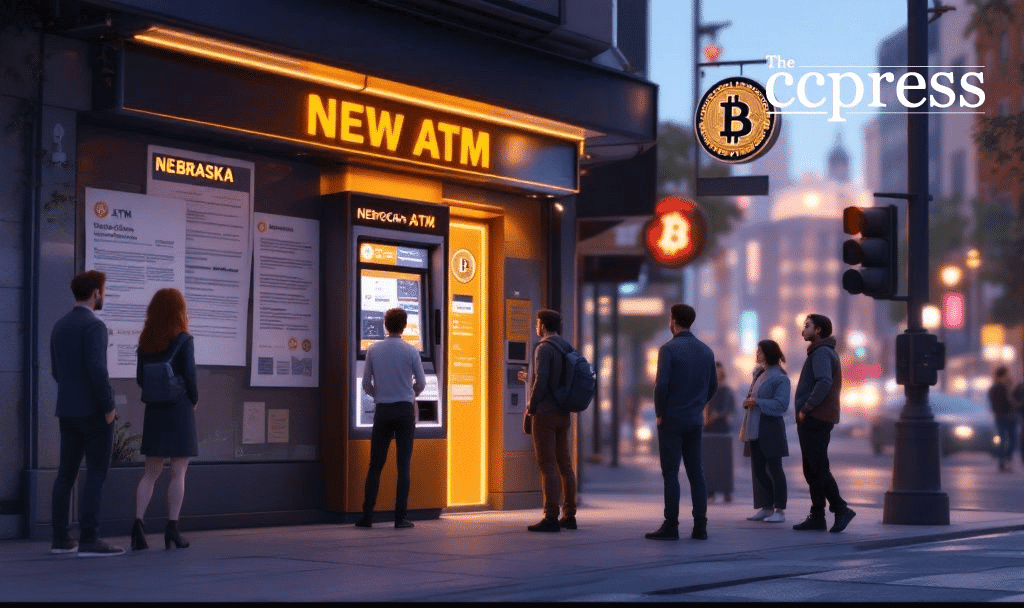- Nebraska enacts Bitcoin ATM regulation law to curb fraud.
- The law introduces licensing and transaction limits.
- Efforts align Nebraska with increased cryptocurrency oversight.

The new law marks a significant step in Nebraska’s effort to combine cryptocurrency adoption with user protection, ensuring a safer digital transaction environment.
Legislative Overview
LB609 introduces regulatory measures for Bitcoin ATMs, emphasizing fraud prevention. Operators must now be licensed and follow strict transaction and fee policies. The law requires Bitcoin ATM operators to be licensed under Nebraska’s Money Transmitters Act and registered with the Department of Banking and Finance. It sets daily transaction limits of $2,000 for new users and $5,000 for existing customers while capping fees at 18% of the transaction value.
Governor’s Perspective
Governor Jim Pillen asserted the importance of creating frameworks for secure cryptocurrency use in Nebraska. “Cryptocurrency is an important, emerging industry, and we’ve been working hard to build Nebraska into a cryptocurrency leader. An important part of these efforts is to make sure that we have guardrails to prevent criminals from taking advantage of Nebraskans.” The law is expected to enhance consumer protection and reflect Nebraska’s proactive approach. The enactment impacts cryptocurrency businesses and users, emphasizing fraud prevention.
Consumer Protection
The legislation introduces a fraud refund policy. New customers can receive refunds including fees within 90 days of fraud. Operators must display fraud warnings and report quarterly on kiosks. The Federal Trade Commission has reported significant fraud losses, underscoring the necessity of such measures in protecting consumers. The crypto market data suggests Bitcoin trades at $28,000, with fluctuating conditions near the $28,500 resistance level. Market analysts view this as a continuation of historical trends.
Future Implications
Experts note potential outcomes from Nebraska’s bill, predicting enhanced regulatory frameworks. This could influence other states, promoting safer crypto transactions and setting a precedent for reducing fraud risks in the evolving digital landscape.
